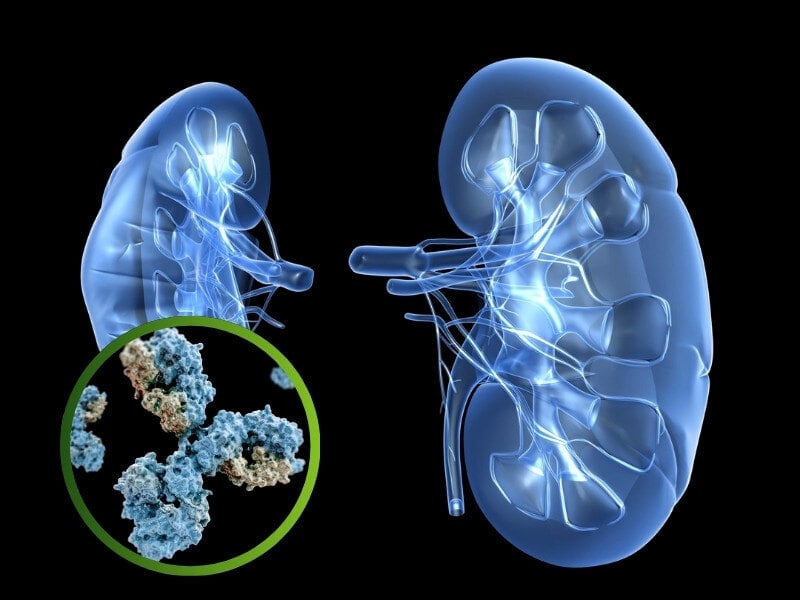Regeneron’s Bispecific Gets EU Approval After FDA Rejection

Regeneron’s bispecific antibody odronextamab (brand name Ordspono), has received approval from the European Commission for the treatment of two different lymphomas. This news comes after the biologic failed to secure approval in the US back in March.
Odronextamab can now be used to treat adult patients with relapsed or refractory follicular lymphoma (FL) and diffuse large B-cell lymphoma (DLBCL) in the EU, after two or more lines of systemic therapy.
FL is diagnosed in the EU about 15,000 times yearly, and DLBCL around 31,000 times yearly. Many of these cases fail to respond to first line treatment, or relapse quickly after. This leaves very few second line treatment options, a problem that odronextamab aims to help.
Odronextamab targets both CD20 – expressed on cancer cells – and CD3 – expressed on cancer killing T cells. The bispecific brings T cells closer to the tumour cells so that they can recognise and kill the malignancy.
Trial investigator Stefano Luminari said: “The EC approval of Ordspono is a meaningful advancement for EU patients and their physicians as a new option to treat both indolent and aggressive lymphomas.”
Luminari is a Professor of Oncology at the University of Modena and haematologist at the Arcispedale Santa Maria Nuova hospital in Reggio Emilia. He worked on the phase I and II trials which tested the bispecific’s safety and efficacy against FL and DLBCL.
He continued: “In clinical trials, Ordspono [odronextamab] demonstrated remarkable complete response rates in follicular lymphoma, as well as compelling efficacy results in diffuse large B-cell lymphoma, including in the post-CAR-T setting. Physicians, especially in the community setting, will have an off-the-shelf option that can be administered out-patient – offering the chance for complete remission.”
Those clinical trials demonstrated an objective response rate (ORR) of 80%, with 70% achieving a complete response (CR) in FL patients. In patients receiving the therapy for DLBCL and had not previously been treated with CAR T therapy, the ORR was 52% and the CR was 31%. In those that had progressed after CAR T, the ORR was 48% and 32% CR.
Back in June, the Committee for Medicinal Product for Human Use (CHMP) recommended that the EU approve the drug. Now, Regeneron has announced that the European Commission has accepted this suggestion.
Biopharma Reporter noted that this approval comes only months after Regeneron’s antibody therapeutic failed to secure approval from the FDA for use in the US. That decision was based on the enrolment status of the confirmatory trials.
In March of this year, Regeneron stated in a press release: “The FDA required that the [planned Phase III] trials include both dose-finding and confirmatory portions. Enrolment in the dose-finding portion has begun, but the CRLs indicate that the confirmatory portions of these trials should be underway and that the timelines to completion be agreed prior to resubmission.”
“Regeneron is committed to working closely with the FDA and investigators to bring odronextamab to patients with R/R FL and R/R DLBCL as quickly as possible.”
George D. Yancopoulos, Board co-Chair, President, and Chief Scientific Officer of Regeneron said: “Ordspono [odronextamab] marks the first approval from our bispecific antibody platform, which we hope will increasingly contribute to our growing portfolio of practice-changing medicines for oncology and other diseases.”
He continued: “Building upon this approval, we are excited about our OLYMPIA program, which includes multiple Phase 3 trials investigating Ordspono [odronextamab] as a monotherapy and in various combinations, in earlier lines of therapy. We’re also excited to be advancing our broader pipeline of CD3 and other bispecific therapies, both to additional hematologic cancers such as myeloma, as well as to solid tumours.”







